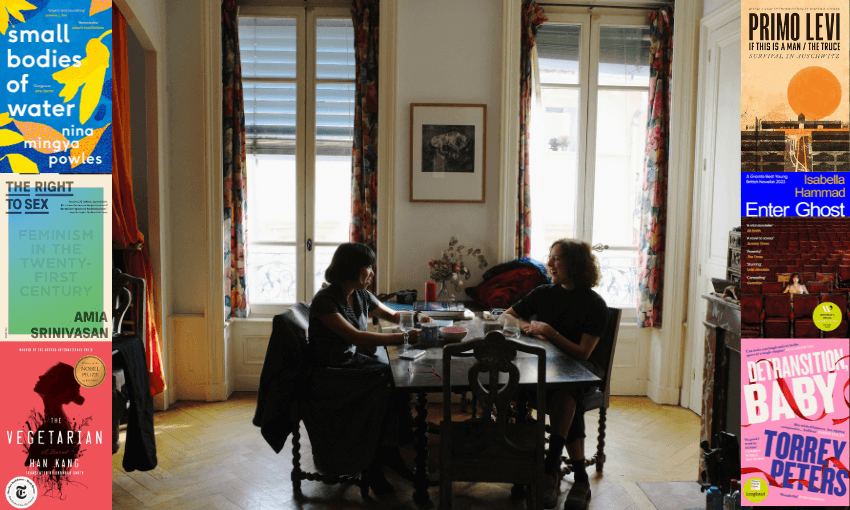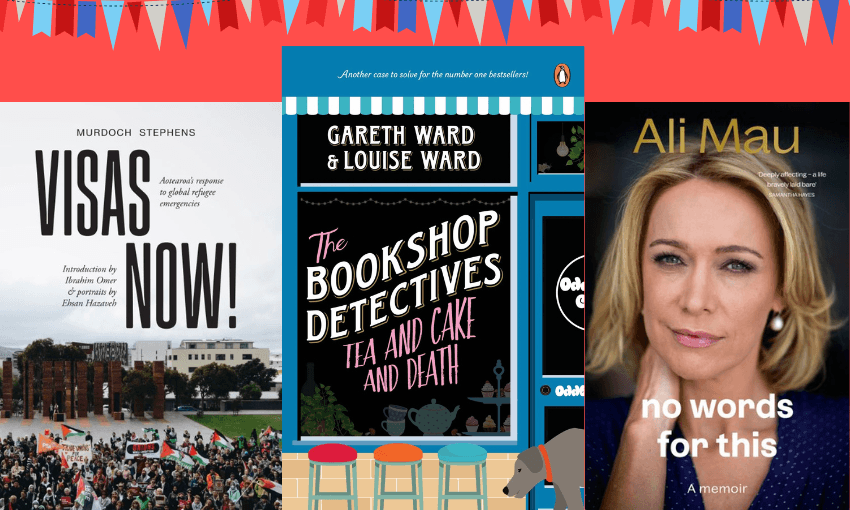Emma Sidnam debates with herself, and with friends, the value of writing with political purpose versus writing for entertainment.
In the first real conversation I had with a friend, who is also a writer, we argued about art’s political power. He said that while an artless world is a depressing one, artists aren’t the real changemakers. He argued that the real heroes are those who help others without any expectation of fame or wealth – people like nurses, teachers, advocates, and charity workers. He said that artists add colour and beauty to society, but that it’s vaguely arrogant to assume that we can make real change.
“Why do you write then?” I asked. He said he writes because he loves writing. He writes because he loves to entertain. He writes because he wants to tell stories.
I understood his point, but I vehemently disagreed with him about art not creating change. Yes, of course nurses and advocates are crucial in turning society’s cogs, but artists are also important. Art can persuade. Art can shape society. I’ve always believed that art can be a vehicle for change.
Another of my writer friends couldn’t finish reading a novel all last year. He couldn’t bring himself to escape into fictional worlds when people in Gaza can’t escape their real one. I understood his feelings, but I kept reading. Despite my feelings in the face of world events, I still read – and loved – a lot of novels last year. In a way I needed to. Reading and escaping is one of the only ways I keep myself sane and well.
So, I kept reading. But I struggled with writing.
As soon as my first novel was getting edited for publication, I started thinking about what I wanted to do next. Writing is all I’ve ever wanted to do, and a writer is all I’ve ever wanted to be. But I hadn’t thought beyond my first novel, the novel I felt I needed to write. Suddenly I was confronted with: what do I want to write?
Determined for a prolific career, I forged ahead and wrote fast. Within a year I drafted a mixed-quality collection of short stories, then decided to pause that and start a contemporary thriller. All year I grappled with the relationship between my characters, the overarching thrust of the narrative, the tense and tensions that make a story good. I decided to take a break from writing for political purpose and instead just tried to entertain.
But it wasn’t going well for me. I kept getting stuck.
In November, I read Enter Ghost by Isabella Hammad. It’s a novel about a British-Palestinian theatre actress who joins an Arabic production of Hamlet in the West Bank. Sonia, the actress, struggles with her Palestinian identity, her own ignorance of the political situation, and the situation itself. Enter Ghost is brilliantly written, beautifully nuanced. It’s better than anything I’ve written this year or ever. It is an important book. It gave me both a clearer understanding of the war in Palestine and the grace to think once again – yes, art is important.
In The English Patient, which is my favourite book of all time, Michael Ondaatje wrote “a novel is a mirror walking down a road”. As well as show us new points of view, one of the best things art can do is force us to interrogate ourselves, and to understand where we really come from.
Representation of “where we really come from” has always been central to my argument that art has political power. There is a real value in seeing ourselves in the protagonists on screen or in books.
When I was 12, I started writing a Percy Jackson-esque adventure novel. I made my protagonist a white boy because I didn’t realise that Asian girls could be protagonists. That’s why movies like Everything Everywhere All At Once, The Farewell and even To All the Boys I’ve Loved Before and books like Crying in H Mart by Michelle Zauner, and On Earth We’re Briefly Gorgeous by Ocean Vuong have been so meaningful to me. These movies and books made me realise that I could be the protagonist. These movies and books made me feel seen. I’ve heard many accounts, like mine, of queer people and people of colour who never realised that they could be heroes, or romantic interests – simply because they never got to see that.
My first novel (Backwaters) was written with the goal of creating the Asian New Zealand representation that I never had growing up. By the time I reached university, I was lucky enough to read the beautiful nonfiction books All Who Live on Islands by Rose Lu and Small Bodies of Water by Nina Mingya-Powles. But I wanted to see representation in fiction, my favourite medium. Backwaters is about racial identity, family, and coming-of-age.
The book has been out for over a year now, long enough for me to wonder whether my political-purpose book was worth it. What was my real impact?
My life hasn’t changed much since publishing. Sometimes, I receive nice messages on Instagram by people telling me that they feel seen. That feels pretty amazing, especially when those messages come from other Asian New Zealanders, or anyone who’s ever felt othered in their own country. I also get lovely messages from people who tell me that they’ve learned something new about the history of Chinese people in New Zealand. It’s pleasant to think that I’ve helped a few people learn something. But it isn’t enough for me to feel like I’ve made a real difference. It often feels like all I’ve done is add my own tiny voice to an already existing chorus.
But then, isn’t it the cumulative force of many voices that creates genuine change? My own work might not have done much on its own, but it’s part of a whole movement of Asian New Zealand writers. In the past 15 years, New Zealand has grown a flourishing Asian artist movement, ranging from Proud Asian Theatre to anthologies like A Clear Dawn: New Asian Voices, and Everything That Moves, Moves Through Another which celebrates mixed-race identities.
Change is usually rooted in communities, not in individuals. Not many people are capable of dedicating themselves 100% to a cause without burning out. The same goes for artists, and especially artists trying to say something political.
I know so many amazing artists working for their communities. One of my friends writes theatre with the goal of helping the next generation of queer kids feel seen. Two of my friends started a zine to spotlight Muslim poets and share experiences from Ramadan. Another group of friends aim to destigmatise sex work through their paintings, note filings, and community events.
All the artists I know struggle with burn out. There’s a lot of pressure that comes with attempting to champion or represent a shared experience, and it’s why artists tend to form and rely on communities. Our communities offer us inspiration, strength, and support in all forms. I am personally grateful to my community of artist friends, including those who helped form the ideas of this essay.
In my quest to better understand myself, I read George Orwell’s essay Why I Write. He explained that he has multiple motivations to write – and he will always be driven by beautiful and interesting prose. However, he always found himself writing directly against totalitarianism. “I cannot say with certainty which of my motives are the strongest,” he writes, “but I know which of them deserve to be followed. And looking back through my work, I see that it is invariably where I lacked a political purpose that I wrote lifeless books and was betrayed into purple passages, sentences without meaning, decorative adjectives and humbug generally.”
I share Orwell’s sentiment. Because writing is not just about the outcome – it’s also about the intention. Like George Orwell, I write better when my work has some sort of political motivation. Even if my novels won’t change the world, I need to believe that they’re expressing something I believe in. I need to believe that I’m adding something of value to the world, even if that value is small.
The vast majority of books don’t reach huge numbers of people. But that doesn’t mean that books can’t still create real impact. Books have always represented freedom of thought and ideas, which is why controversial books have often been burned and banned. Trump’s current ban on books on critical race theory and “gender ideology” shows that even he appreciates the influence of books.
In 2017, five boys in the United States graffitied racist symbols, including the swastika, on a schoolhouse. Alejandra Rueda, a prosecutor and deputy commonwealth attorney, convinced the judge to hand down an unusual sentence. Instead of putting these boys through a system likely to further ingrain their existing views, the judge ordered the boys to read 12 books from a pre-chosen list, and write 12 essays about what they learned. The books on the list include: A Report On The Banality of Evil by Hannah Arendt, The Color Purple by Alice Walker, A Thousand Splendid Suns by Khaled Hosseini, and I Know Why The Caged Bird Sings by Maya Angelou.
After completing his sentence, one of the boys wrote: “I feel especially awful after writing this paper about how I made anybody feel bad. Everybody should be treated with equality, no matter their race or religion or sexual orientation. I will do my best to see to it that I am never this ignorant again.”
If those five boys grow into men with empathy, men who understand racism and violence and would never graffiti another wall – does that not mean something?
I’m not saying that books are a silver bullet. There’s no easy solution to societal issues, no magic pill that will melt away inequities like they didn’t take centuries to build up. But they can do a lot. Some books that have shaped my personal world views include: If This is a Man by Primo Levi, The Vegetarian by Han Kang, The Right to Sex by Amia Srinivasan, and Detransition, Baby by Torrey Peters. These are books that have opened my mind and clarified my thinking of various topics.
At the end of the day, I realise I will always write politically. Politics might not be the central theme of future projects, but politics will always be an element of my books because politics will always be an element of life. I write with the hope of giving someone a new perspective. Maybe one of my books will help someone break down a stereotype. Maybe one of my books will give someone hope.


